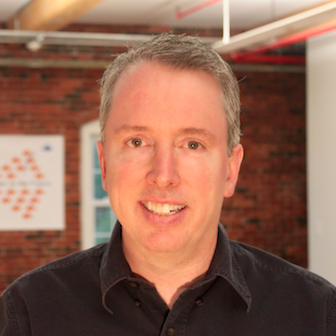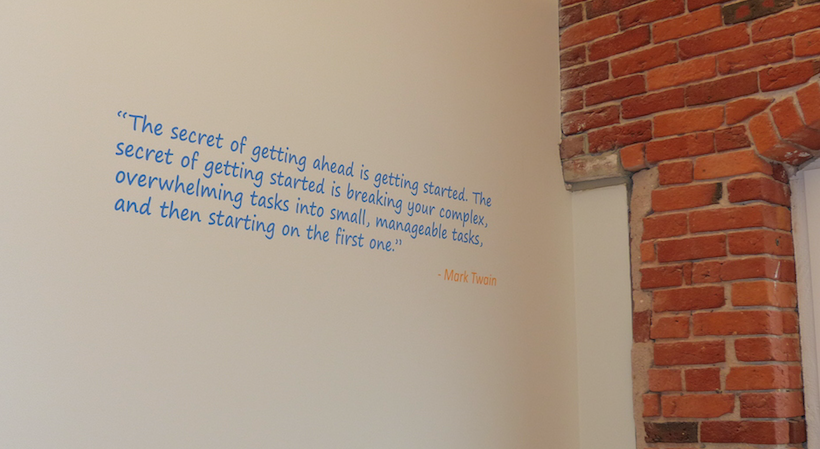Rick Fiery is a serial entrepreneur and Wharton MBA whose previous companies have raised millions of dollars in venture capital. With co-founder, Tom Bergeron, Fiery launched InventiveLabs, an Amesbury, Massachusetts-based business incubator aimed at helping people with learning differences such as ADHD, autism or dyslexia launch their careers by fostering creativity through entrepreneurship.
The entrepreneurship program functions like an early-stage startup incubator with a pitch competition and a model in which participants learn business concepts like intellectual property or revenue models when those topics arise in their work.
We caught up with Fiery to find out how InventiveLabs fosters entrepreneurship, why he believes in neurodiverse teams and more. The following conversation has been edited for clarity and brevity.
StartupNation: When and why was InventiveLabs created?

Rick Fiery: Both Tom Bergeron and I were trying to figure out our next startup. Tom really liked the concept of creating a business incubator. But we couldn’t really figure out why people would come to us versus some of the more established incubators.
Then our conversation meandered to family members who have learning differences. We started talking about some struggles they faced, both in the workforce and in making it through college. We saw that there are a lot of tremendously bright, capable people. They can compete in lots of ways, yet you get discarded a little bit by society if you don’t have a college degree.
It was the combination of that concept and then the fact that we were talking about business incubators before that made me say, “What if we created this place where these folks could come and learn enough about business or enough about themselves to find the proper career path for them?” That’s what generated the idea. (In 2014) we started up with our first team. We’re well into our fifth year right now.
Related: Peter Shankman: A Faster Than Normal Entrepreneur
StartupNation: Why is cognitive diversity, sometimes called neurodiversity, important in the startup world?
(Editor’s note: Neurodiversity is a concept in which neurological differences, such as dyslexia or ADHD, are to be recognized and respected as is any other human variation)
Rick Fiery: If you look at all the famous entrepreneurs out there—people like Richard Branson and Charles Schwab—a lot of famous folks out there acknowledge that they have learning differences like ADHD and dyslexia. I think what makes them great entrepreneurs is that they focus on their strengths. Richard Branson openly acknowledges that he does not understand accounting and balance sheets, but Branson says he hires the best accountants and financial folks in the world to run his finance team. Then he doesn’t worry about it because he knows they’ve got it covered.
If you bring in a neurodiverse team to attack an entrepreneurial problem, especially if the leader is the idea person and they fully delegate all of the responsibility to everybody else in the team, it’s those kinds of companies that actually rise to the top. It’s very rare that you see micromanaging CEOs of wildly successful companies.
By definition, people with neurodiverse traits have to delegate the things that they’re not good at. If you can find the right kind of team with different kinds of brain portfolio, it’s kind of like balancing a financial portfolio. You want to have a mix of appropriate securities to maximize your return on your investment. To me, it’s the same with businesses. You can have a neurodiverse team with some people who are creative, some people who are very organized and task-oriented, some people who are very detail-oriented, and then some people who are just out-of-the-box creative. Those kinds of teams are the ones that can become successful.
StartupNation: What do startup founders need to know about hiring or managing neurodiverse people?
Rick Fiery: If you’re creating a startup, you want a lot of creativity around the table and people who can think through problems and think outside the box. I would jokingly say the surest way to kill off a creative team is to require everybody on the team to be there at 8 a.m. Monday morning for a staff meeting. Lots of companies are guilty of that.
Neurodiverse folks sometimes operate on a different time schedule. You can kind of see that in the tech world, where sometimes development teams will show up at 11 a.m. and work until 2 or 3 a.m. They’re working 13- or 14-hour days, but they’re doing it on their body cycle and on their body clock. I think it takes acceptance that everybody works different hours and everybody’s creative at different times during the day.
StartupNation: Who’s a good fit for the entrepreneurship program at InventiveLabs? Do you need to have an idea for a business before you apply?
Rick Fiery: No idea required. In fact, usually the best way to come here is if you don’t have a preconceived notion of an idea that you want to start. A lot of people say, “I’ve had this wonderful idea for the last five years that I’ve been thinking about.” Nine times out of 10, we get people in here and they start to research that idea and they find out some other big company’s already done it or it’s patented. Then they end up demoralized and frustrated.
Our first session is all about brainstorming as a group. Different industries, industry trends, a bunch of different ideas, and coming up with lists and lists and lists of business ideas. Usually these people are highly creative and have lots of ideas, then we apply filters and we help them think through all the relevant business dynamics for each idea.
If you could find where their passion aligns with something that truly has the opportunity to become a good business for them, then that’s what we’re aiming for. The first four months of our first session are really about that, and then the second four months is now let’s go out and try to create a pitch deck for it, work through some financial models, testing your idea and really making sure it’s something that you’re going to try to raise money for and go out and do.
You don’t have to have an idea. It can be anybody at any age. We’ve had people in their 40s and 50s looking to come to the program. Our sweet spot tends to be those in their 20s, mainly because at that age, it’s a lot easier to be entrepreneurial if you don’t have a family yet.
You don’t need to have a learning difference, but that’s who we tend to attract because we are looking for the highly creative individuals who think outside the box. I think some people would argue that if you really want to be an entrepreneur, you almost need to have that so you aren’t afraid of some of the risks that you might take. But at the same time, we have had people that certainly don’t fit that description and they’re great people to plug into a team.
Sign Up: Receive the StartupNation newsletter!
StartupNation: Are there any success stories that you can share from the earlier cohorts?
Rick Fiery: A lot of them are in their early stages. We do have a company out there called Hyperapptive that has built a wake-up app, and they’re in the process of getting that launched. It’s a video wake-up alarm where you can say, “Hey, I’ve got an exam tomorrow morning. Send me a video to wake me up,” to all their friends. Each friend will get a notification. They press a button and record a wake-up video and it stacks them all up. So instead of waking up to an alarm that’s going “beep, beep, beep,” in the morning, it’s all your friends waking you up and rooting you on for your exam. They’ve raised seed funding.
For more information on InventiveLabs, visit the official website, or apply for the Entrepreneurship Program here, which accepts applications on a rolling basis.






